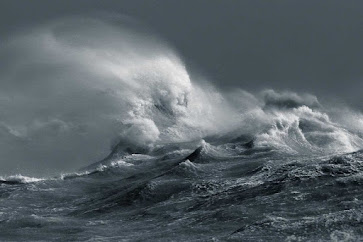Courage: Boldly Go Where No One Has Gone Before
"All truth passes through the three stages: First, it is ridiculed. Second, it is violently opposed. Third, it is accepted as self-evident." -- Arthur Schopenhauer, Philosopher
The first stage of getting ridiculed is the very first hurdle to overcome and requires the founders to stay the course yet be adaptable and listen carefully (and read in-between the lines) to people's objections. The famous line by Henry Ford that "If I had asked people what they wanted, they would have said faster horses" is an example of how listening too literally to your potential customers can cause you to miss the underlying problem to be solved, which is to accomplish the goal of getting from point A to point B faster, more easily and comfortably for example.
The second stage where people violently oppose you is when they resist your solution. For example, in the world of artificial intelligence (AI), humans are often distrustful of any medical diagnosis rendered by AI because the results may not be easily explainable.
In the third stage, once people finally accept your solution, then it suddenly becomes self-evident that it is acceptable and anyone else who rejects it is sometimes chastised as being "stupid" not to see it when that level of support was not there during the early days. For example, today any "flat earth" supporters are ridiculed and considered "dumb" for not accepting that planet earth is round when for many centuries human believed it was flat.
Throughout these experiences that a startup founder has to endure and overcome, the people who are defeatist could blame the circumstances. For example, less than 2% of venture capital dollars are invested in female founders and a fraction of that in minority female founders. As a minority female founder, I could potentially point to the circumstances and give up. But I read somewhere an amazing perspective that the same boiling water that softens the potato hardens the egg -- it's about what you're made of, not the circumstances.
If it's what you're made of that helps you get there, then I'd say the essence of "what you're made of" is courage. Founders need the courage to overcome ridicule and courage to overcome violent opposition. All of this is scary and lonely. That's why it's often helpful for founders to have co-founders, not only to share the tremendous workload to divide and conquer, but also to unite and find a pillar in one another to support and stand together against the headwind.
While startups are often billed as an exciting adventure, much like space explorers in Star Trek are said to "boldly go where no one has gone before", the reality is that the journey is arduous and never feels glorious when you're deep in the execution trenches. With such a bumpy ride, it's difficult to be courageous consistently. Yet, during the early stage of a startup when there are so many uncertainties, team members often look to the (co-)founders to be the rock in showing courage and a north star in setting direction.
According to Ret. Four-Star General Stanley McChrystal, when asked how one knows if a commander will be good in combat, he responded "Some people keep asking for more information and what they're trying to do is drive uncertainty to zero so that there's really not a question on the right course of action because you know everything. But you can't do that. It's not achievable. So they become hesitant. They become tentative, and they become focused on getting more and more information to ratchet the uncertainty out of the situation and they don't act."
This is arguably true not only of co-founders, but also department heads, and investors. At some point, one has to go with people who can take action and make decisions swiftly with insufficient and imperfect information. In a world of "data-driven decision-making", many people hide behind this idea for too long and insist on gathering more and more data, at the peril of analysis paralysis and simply missing the opportunity boat.
Founders looking to bring novel ideas to market takes courage. And taken the safe path doesn't often get you there:
"You cannot discover new oceans unless you have the courage to lose sight of the shore." -- Andre Gide
As the slogan of Nike slogan encourages all athletes: "Just do it."

Comments